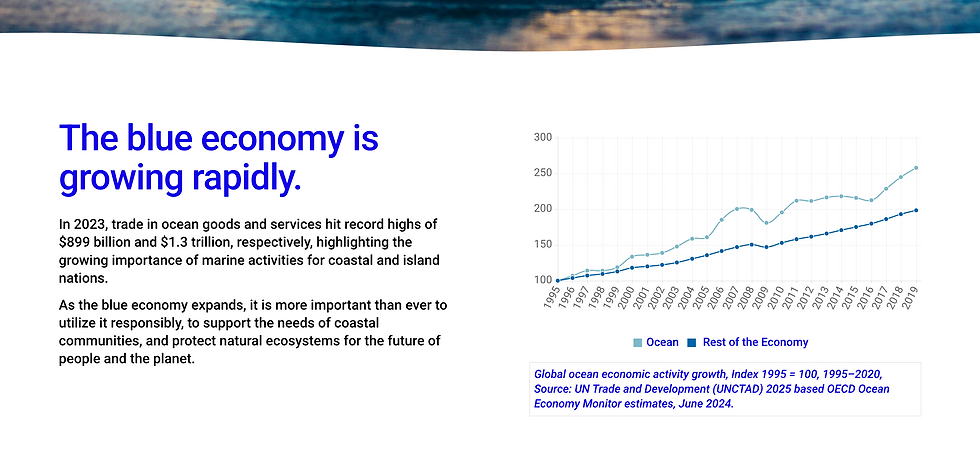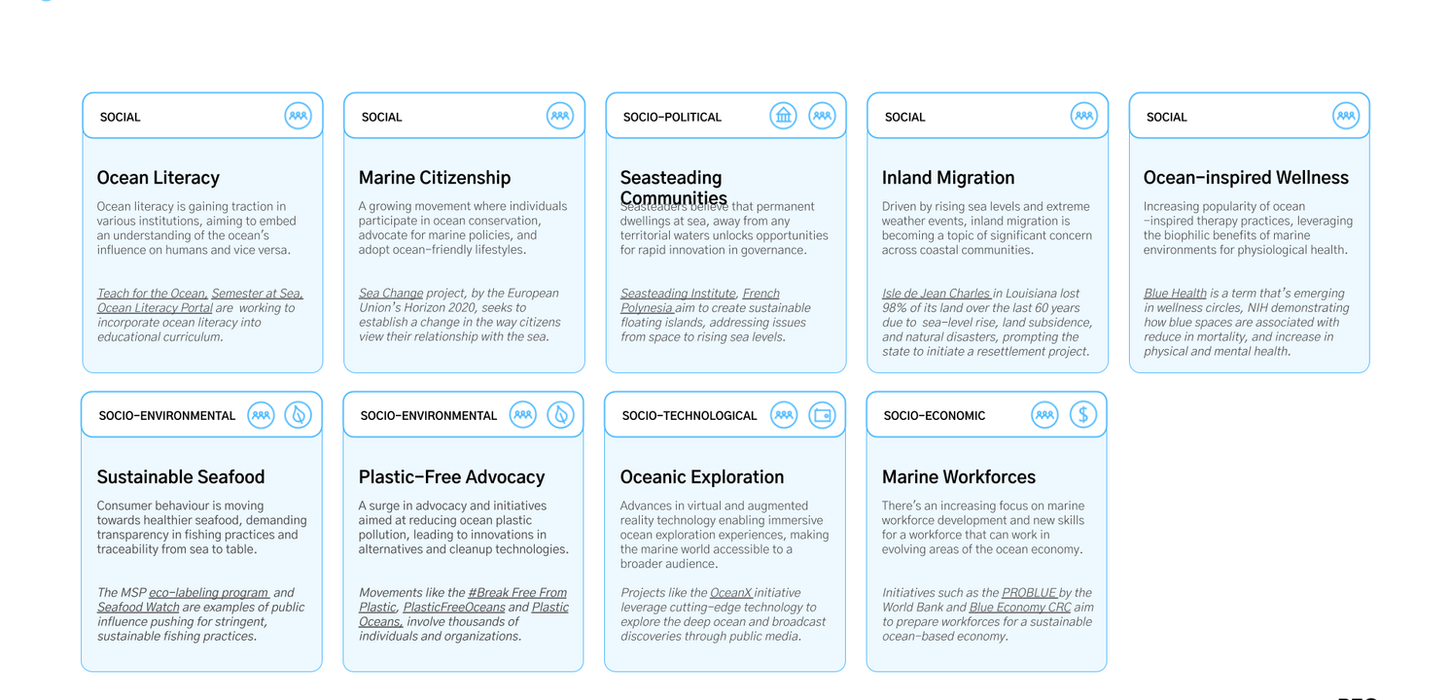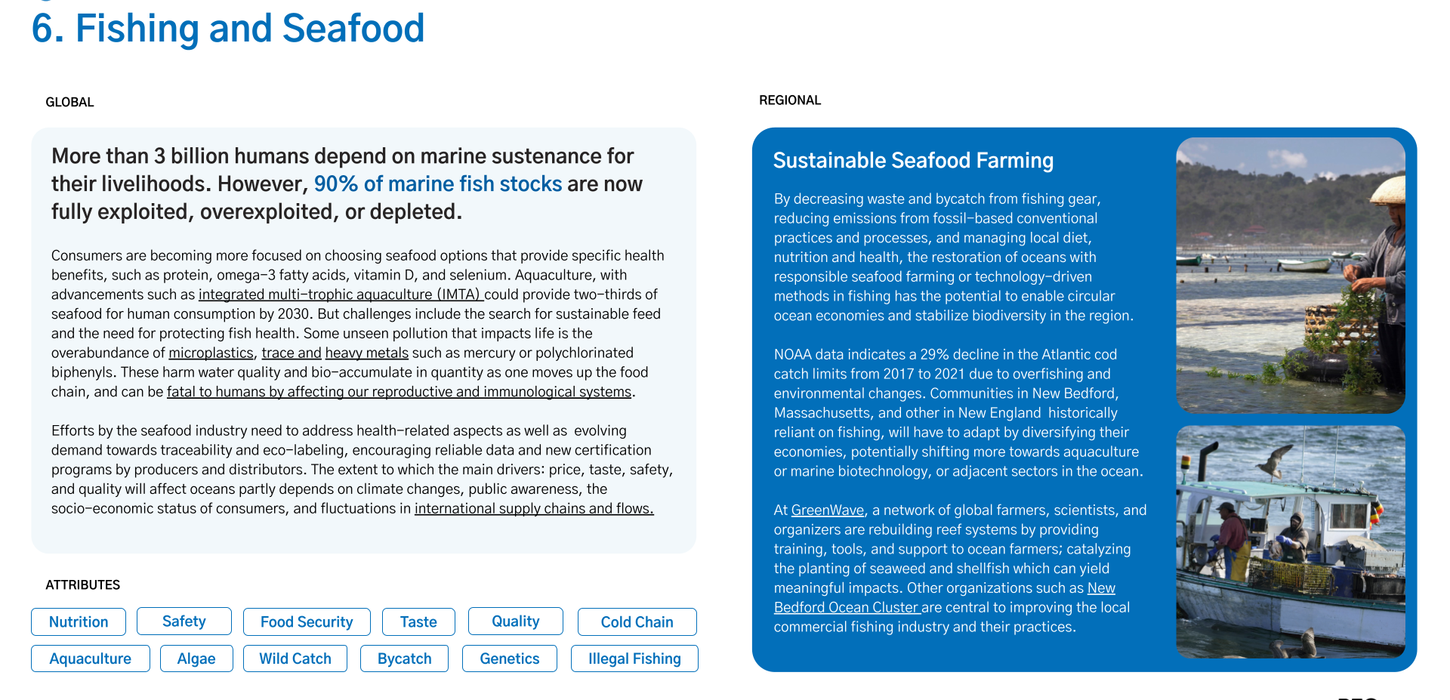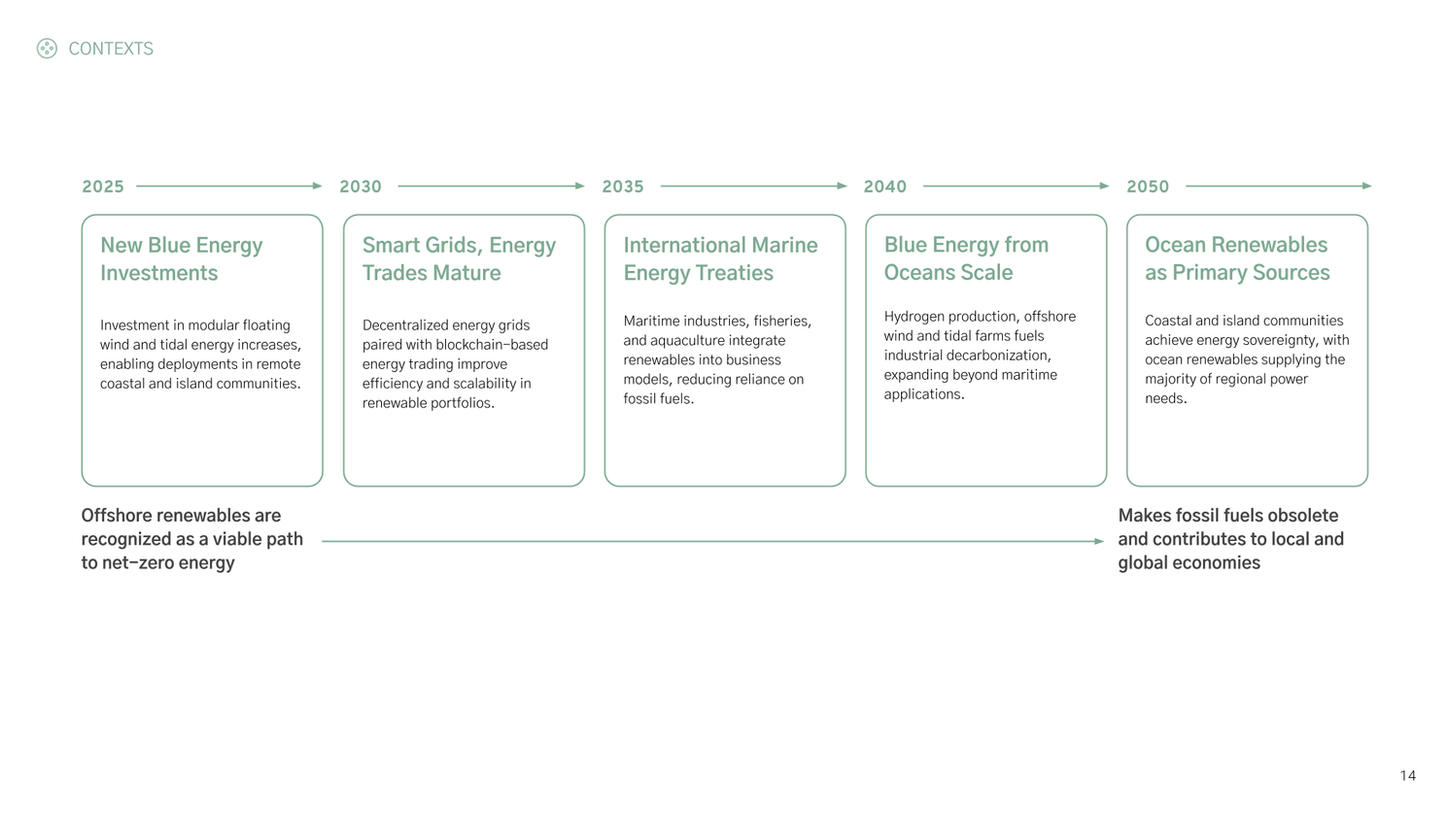Ocean Futures Toolkit
Nov 2023 - Present
The Ocean Futures Toolkit is a strategic foresight and design framework to help organizations plan for change in marine and coastal systems. The toolkit in the form of a library equips research teams, public agencies, startups, and educators with the information to map trends, drivers, scenarios, and develop meaningful pathways forward in ocean conservation. Built on the STEEP framework (Social, Technological, Environmental, Economic, and Political), it combines futures thinking with place-based knowledge, stakeholder input, and storytelling.
Team
Arvind Bhallamudi (Lead Researcher), Jack Lenk (Experience Design), Nick Scappaticci (Founder)
Collaborators: Zoe Lee, Annie Chen, Alyssa Bishop, Diana Sanchez, Laila Aukee, Jae Yoon Myung
Carried out the planning, research, analysis, synthesis, design and launch of the platform.
Role
Services
Communication Design
Web Experience Design
Research
Data Design
Engagement Strategy
Futures Thinking

Context
What if the oceans weren’t about borders, but about a vital, interconnected system that supports all life on our planet?
The blue economy is growing rapidly across the world, with new technologies and activities being deployed in the oceans. Regional and hyper-local areas rely heavily on the regional sea waters for fishing and aquaculture, tourism, ports and shipping, and energy. On the other hand, the oceans are warming at record levels each year, with significant changes in acidification, stratification, extreme weather events, biodiversity loss, sea level rise and harm to coastal communities.

Approach
Being inspired by the various innovation and leadership activities in the blue economy and its vibrant ecosystem, I started with sketching mental models and frameworks by capturing various perspectives of the studio team and stakeholders through brainstorming and informal interviews.
These diagrams about the ocean guided our research directions, and informed the selection of core topics that should be within the scope of this toolkit.

Fig.1-5 Mindmap of elements in interconnected ocean and land systems., Iceberg model for oceans understanding.
Trends and Drivers Research
Several macro-level drivers and micro-level trends of ocean systems are of crucial to the way we understand the planet and its ability to cope with changes as human activities and technologies advance. These factors have the potential to create a broad-reaching impact across multiple sectors, and influence our near and long-term scenarios.
We have categorized and described 8 drivers and 50 trends the pages of this toolkit, with individual attributes, reference links and sources for the data points.
Screen.1: 50 trend cards across the social, technological, environmental, economic, and political spheres.
Screen.2: 8 drivers of change in planetary and human systems that have long-term impact.
Stakeholders and Scenarios
A series of workshops and interviews were held with ocean technologists, entrepreneurs and researchers to better understand potential scenarios across infrastructure, conservation, education and policy.
In order to help us cast the audience's speculations across a range of sectors, we have attempted to list locations of relevance from which we identified users and emerging needs that may be addressed by a new service or product ability. These are areas where ocean tech plays an important role the shaping new initiatives and ventures.
Screen.3 Stakeholder personas.
Screen.4 4 contexts co-designed with the team during a participatory workshop.
Centering Ocean Data
The pursuit of marine resources seems to be a vast, untapped frontier from renewable energy sources to deep-sea mining. It can drive development and the quality of life, but only if the natural capital is managed well, preserving marine ecosystems and equitable distribution, and holds risks in pushing ecosystems toward a collapse.
This deck focuses on the unique positioning of ocean data as a means to shared, systemic and measured responses to addressing climate concerns in the ocean.
Screen.5 Ocean data, design strategy deck.
Storytelling
The toolkit website includes a trend and driver library, scenario-building guides and templates for co-creating ocean-related strategies. It is designed for flexible use— speculating the future of aquaculture, prototyping ocean monitoring mental models, or planning for climate literacy.
While the toolkit was born out of regional coastal challenges and opportunities, its structure allows it to be scaled to marine ecosystems and communities around the world. By connecting localized insights with global relevance, it supports informed, creative, and collaborative decision-making in an era of climate uncertainty.




Screen.6 Landing page sections of the final website of the Ocean Futures Toolkit
Multimedia and Communications Plan
Balancing creative writing with technical information was done in parallel with the assisting the design team with layouts, visual graphics, imagery and interactions. The communications strategy and website were refined, tested and launched in June 2024.






































